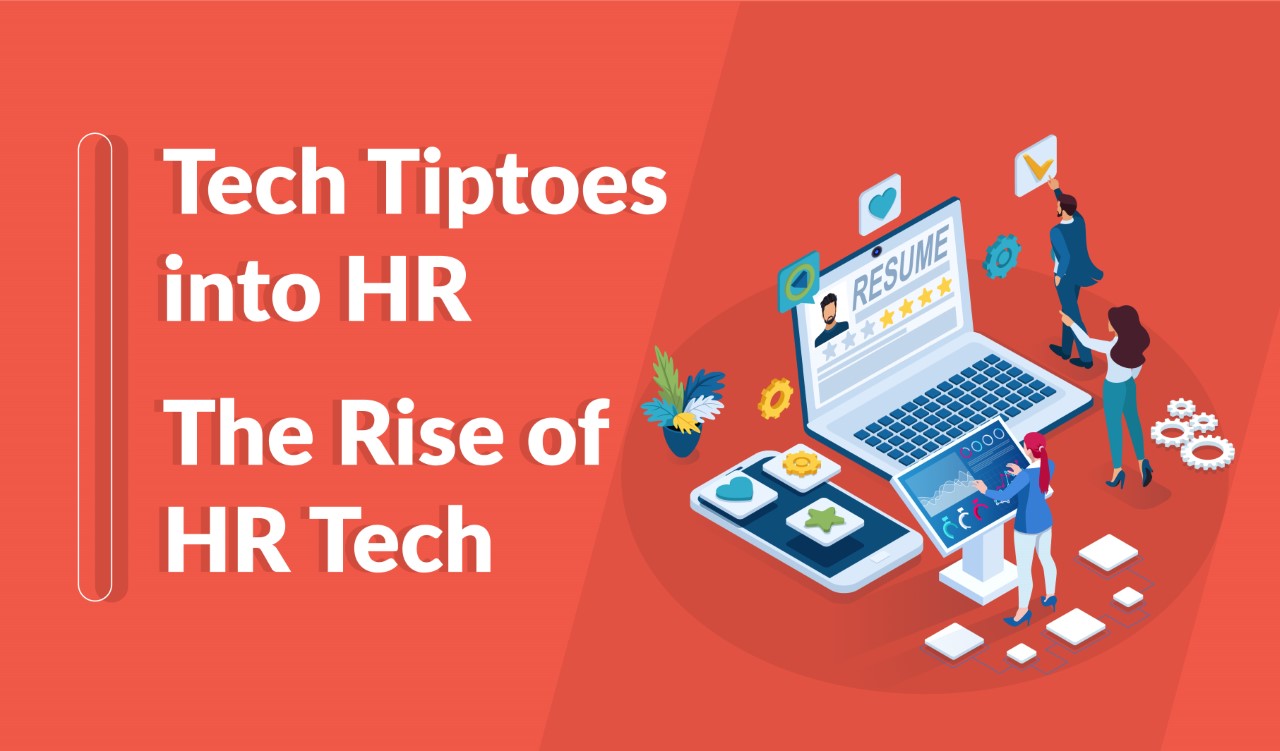Despite the fact that many HR leaders and professionals are climbing on the technology bandwagon – flaunting impressive buzzwords, most of them seem to be ignorant of how their business will be benefitting from these emerging technologies. Most are often rendered speechless when asked to pinpoint concrete gains. Many may not even know what classifies as HR technology and what doesn’t.
Guess the result of embracing these big advancements without any sound business logic? All efforts go down the drain due to the lack of business sense, leaving the HR and business leaders wondering what went wrong.
Technology is piloting the HR landscape, transforming the traditional practices of human resource management. And the tech wave doesn’t seem to fall anytime soon. From recruitment to on-boarding and payroll to employee training, each process is being simplified by a pool of cutting-edge technologies.
What is HR Technology?
This succinct definition by SearchHRSoftware seems to explain it all:
“HR technology (human resources technology) is an umbrella term for software and associated hardware for automating the human resources function in organizations. It includes employee payroll and compensation, talent acquisition and management, workforce analytics, performance management, and benefits administration.”
HR tech is gradually becoming a complementary element of HR departments’ activities and an indispensable tool for most enterprises. A great number of HR tech start-ups and enterprises are coming up with their own ideas and contributing to the sector, making the landscape ready for exploration.
Evolution of HR Tech
HR technology appears to have been around for a long time. However, a closer examination shows that HR tech itself has undergone significant evolution and has achieved remarkable milestones.
For many HR experts, the year 2012 marked the year of generational shift in technology — the era in which a new league of applications made its way into the HR technology industry. This rapid evolution can be largely attributed to the introduction of SMAC—social, mobile, analytics and cloud.
The migration to the cloud ushered in a new era of tech-savviness. HR apps became less bumpy and set the scene for the modern apps we use today.
Within a span of seven years, HR techniques and tools – that developed as a convergence of these technologies – have been regarded as the “future of HR”. Surprisingly, over 5000 companies have shifted to the cloud in the past seven years. While some companies are still adhering to their on-premise HR software, the trend is gradually dying as companies continue to strive for the cloud and adopt these futuristic HR technologies.
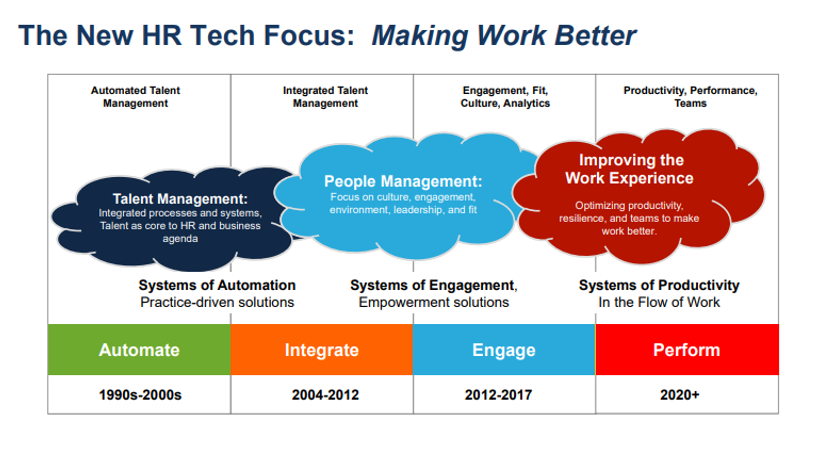
For today’s organizations, the focus has shifted from automating and integrating your talent practices to improving your employee experience. The key concern for today’s HR professionals and business leaders can be summarized in one phrase: “Improving the work experience.”
Companies are now going out of their way to make employees’ lives better, especially when they are now facing skills and people shortages. And to improve work experience, they need to apply design thinking with the ultimate goal of generating higher engagement and satisfaction. Besides, creating a culture of “after action reviews”, “reflection” and “open feedback discussion” is tantamount to taking a giant stride towards making the workplace better.
The systems of the future need to offer functionality that optimize resilience, enhance efficiency and improve productivity so as to provide your business with better operational performance, strategic oversight, increased value and the capacity to turn on a dime when the need arises.
Since employees are the ones who hold relevant information regarding what should be fixed at the workplace, a burning need arises for employee experience tools. Employee experience tools help leaders monitor and improve performance in many ways. With honest feedback received, employers recognize what’s working and what’s not, helping their team and company get better over time.
So, what is the impact of this rapid evolution of HR tech? The whole face of organizational structure and responsibilities is improving. IT department no longer owns HR, but it is now HR department that owns IT. Although IT lends tremendous support without any doubt, core decisions related to systems and processes are in the hands of business leaders and managers now.
Rise of HR Tech
As technology advances at a frenzied pace, digital innovation influences every aspect of our workplace. We see traditional marketing turn to digital marketing, physical sales meetings turn to online sales meetings, and technology gradually permeates the human resource industry.
There has been a massive upsurge in tech start-ups laying emphasis on the advancement of human resources. While many large-scale enterprises are already in the industry, smaller HR tech companies are still thriving and entering the field.
The link between technology and human resource has somewhat become inextricable as it allows companies to better recruit, develop and support their workforces, making the overwhelming processes more efficient and effective.
This seamless integration of technology into HR processes has empowered organizations to streamline recruitment, performance management, and employee engagement. One notable development is the use of online digital business cards, which help enhance networking and professional identity management in a digital-first world. Additionally, AI-driven recruitment platforms are optimizing candidate sourcing, while employee training and development programs are increasingly relying on virtual learning environments. By adopting such technologies, companies are not only improving operational efficiency but also fostering a more agile, connected workforce that can adapt to ever-changing demands.
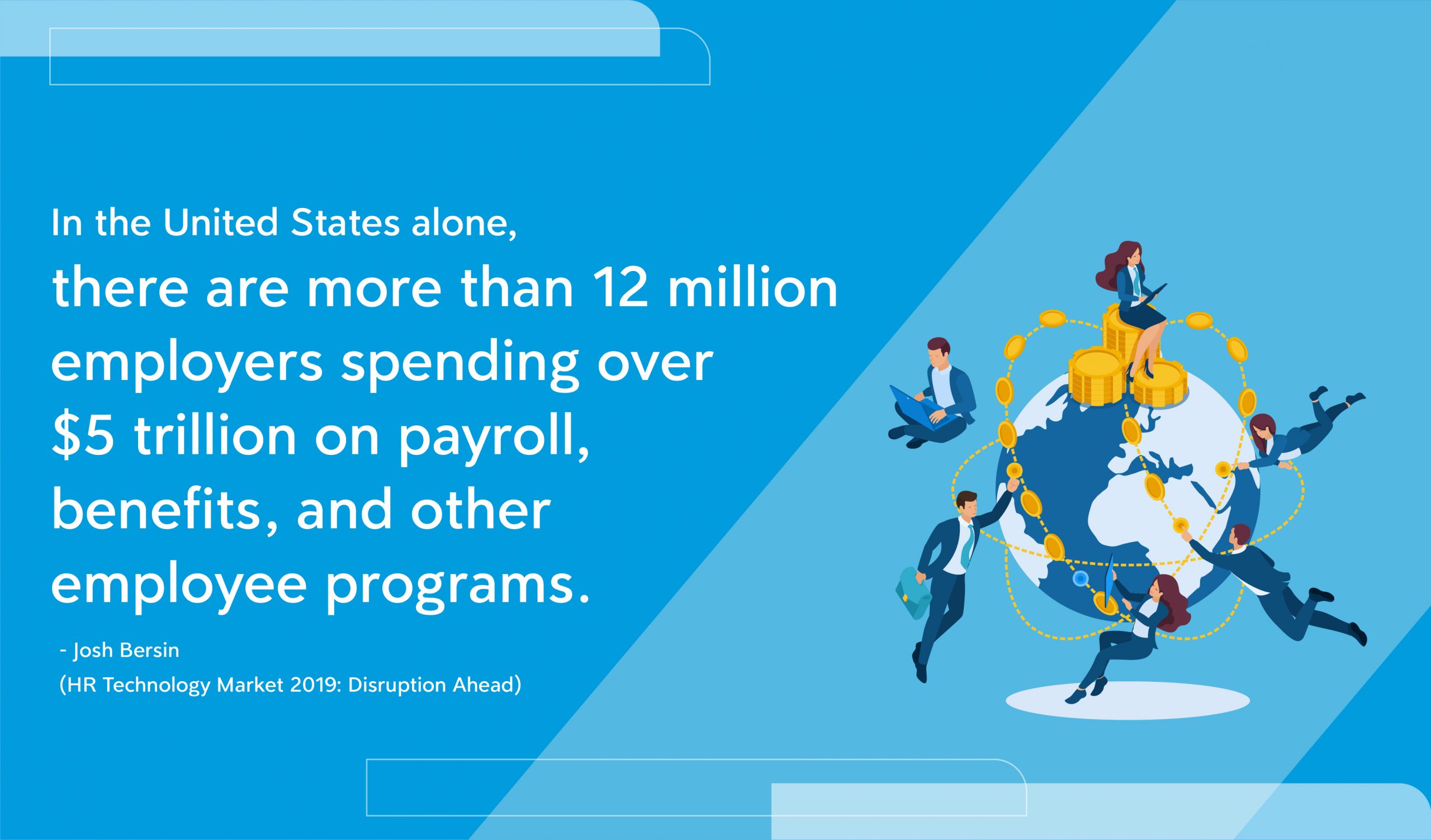
The global market is certainly booming, with its current value amounting even to $400 billion. More than 12 million employers are spending around $5 trillion on benefits, payroll and other employee programs in the United States alone.
Companies are lavishly spending on HR tools, constantly looking for innovative ways to transform their workforce, increase productivity of employees and enhance the quality of hire, and improve employee engagement and retention. This is why, private equity and venture capital firms are investing a large sum of money in this sector.
The Global HR tech VC report for Q1 2019 indicates a dramatic rise in HR-related apps. At the beginning of 2017, less than $0.2B was invested in HR apps worldwide. Fortunately, tables turned in Q1 2019, with Global HR tech VC investments rising to new heights.
This has resulted in more dollars invested this quarter than any quarter since HRWins started tracking it – about $1.751 Billion across 75 investments.

Companies’ investments in HR apps (Source: Global HRtech VC report)
Technology is enormously contributing to the HR sector. HR tech has attracted substantial investments from companies worldwide, and its tools only continue to grow.
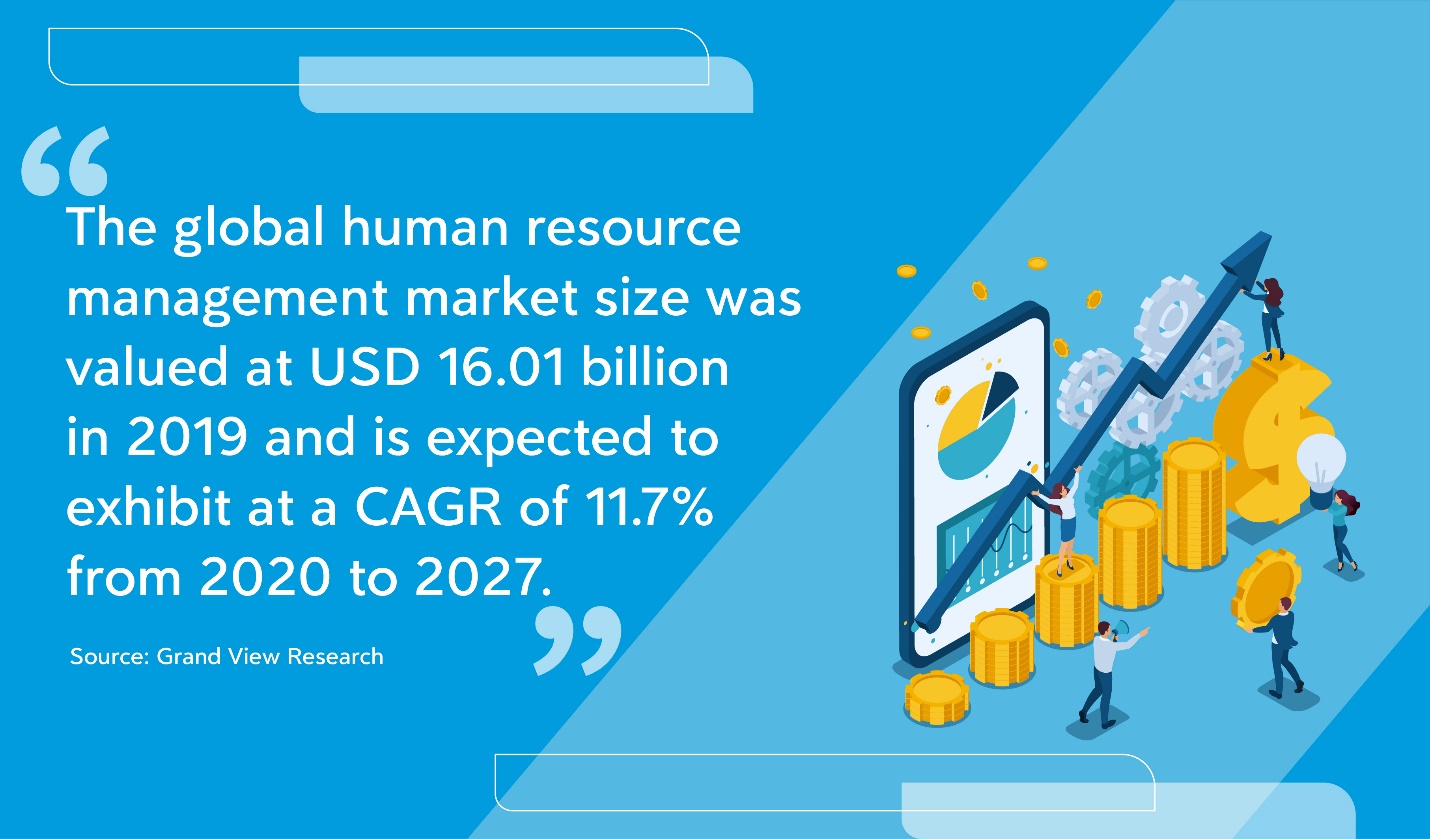
The evolution of ingenious human resource management (HRM) solutions have allowed professionals to devote less time to HR activities and divert the focus on more important things i.e. in attracting the right pool of candidates and improving candidate and employee experience.
Tech Giants Enter the HR Tech Space
With a large number of companies building AI-based talent tools and cloud-based core HR systems, the entire talent management system is being reshaped. It is not surprising that players like IBM, Facebook, Google and other tech giants are entering the space.
IBM
For the past 6 years, IBM has been using its artificial intelligence tools to evaluate employees and prepare them for internal mobility and career advancement. The company is now attempting to recreate its business from manufacturing computer chips and selling low-end hardware to investing in cognitive solutions and cloud computing. IBM now aims to expand its talent pool to support that shift.

Launched in 2016, Facebook’s Workplace is part productivity tool, part social network and part messenger for teams. The platform marked Facebook’s entry into the HR tech landscape, competing against titans like Slack, Microsoft teams, and Asana. Your Workplace account can be viewed only by your team/ company and is separate from your personal account, and has now hit 3 million paying users.
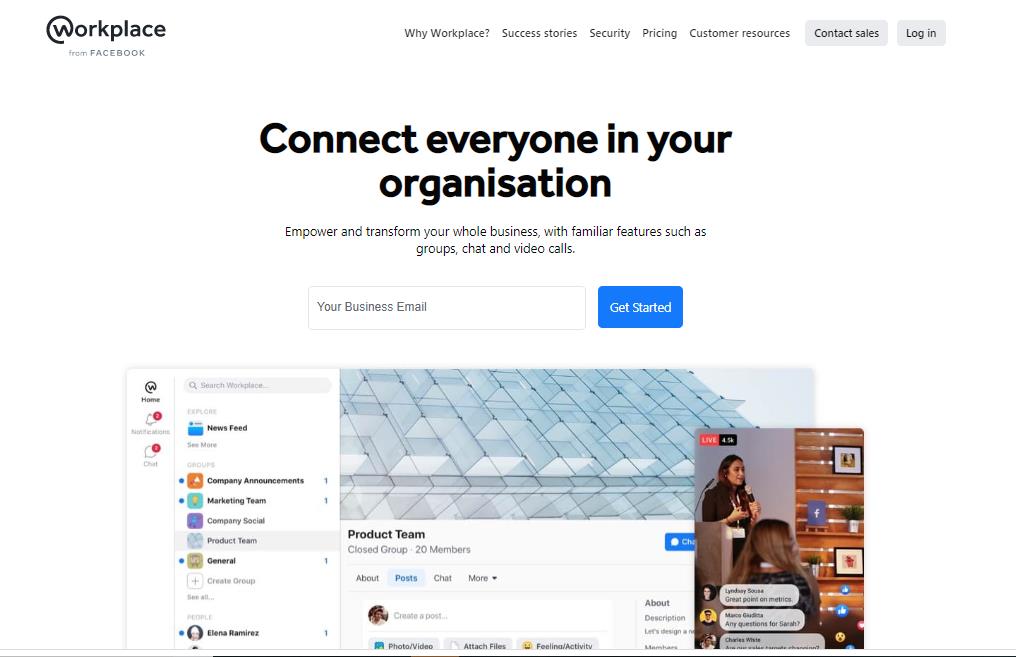
Google also got in the game with the launch of Google for Jobs. Using machine learning-trained algorithms to sort and organize job listings from well-known employment sites, this platform has made the process of job search way easier and time-saving.
Google took a step further in the recruiting business with the launch of Hire: an applicant tracking system and recruiting software, which according to Google “makes it easy for you to identify talent, build strong candidate relationships and efficiently manage the interview process end-to-end.”
Google, however, will be shutting down Hire in September 2020.

Some HR Tech Ideas Mooted by Companies That Are Well-Received
First, pre-screening software that help to eliminate candidates not meeting the basic requirements is one of the most sought-after HR technologies.
Second, HR tech companies have built user interfaces in a way that allows employees and job applicants to enjoy a friendly and pleasant experience.
Third, since the cloud technology helps create massive economies of scale for HR customers, it is becoming ubiquitous; it is primarily being used to reduce the excessive resource involvement.
Fourth, technology that lets the workforce keep track and respond to the changing market conditions is getting increasingly popular. This is because companies like to view concrete information in a system and enjoy the flexibility of adapting to different situations.
Apart from them, feedback mechanisms are also gaining immense popularity as they significantly improve engagement of the employees and consistently motivate them, thereby making them feel more involved in the company.
Finally, novel technologies that can be integrated into present business processes are also in high demand.
Best Software Technologies Dominating the HR Tech
There is a plethora of solutions and capabilities that offer various options to the HR departments according to their needs. Whether it is talent management, personality assessment or learning management, HR tech has eased human resource worries to a large extent.

There is a plethora of solutions and capabilities that offer various options to the HR departments according to their needs. Whether it is talent management, personality assessment or learning management, HR tech has eased human resource worries to a large extent.
Best Pre-employment softwares 2026
- Applicant Tracking and Talent Acquisition (sourcing, selection, interviewing, recruiting)
Example: Recruitee, Yello, Oracle Taleo, Zoho Recruit, BambooHR - Pre-employment testing (behavioural assessment, skills assessment, personality assessment)
Example: The Talent Games, C-Factor.AI, Pymetrics, Interview Mocha, Revelian, HireVue - Onboarding (employee database, task flow management, handbook)
Example: Whatfix, iCIMS Onboard, UltiPro, Lessonly
During employment software
- Talent Management Software (Learning Management System, certification, career management)
Example: iSpring Learn, Trakstar, SAP Litmos, TalentLMS, Spidergap, Workable - Time & Attendance Software
Example: Harvest, Replicon, Paycor, Jibble - Employee Engagement and Performance (peer reviews)
Example: CakeHR, Culture Amp, Hi5, Engagedly, Bitrix24, Optimity - Payroll (salary planning incentive programs, and commission)
Example: Workday, Payroll Mate, Namely, paylocity, - Employee Recognition
Example: Bonusly, energage, Fond, Kudos, Awardco, SalesScreen
After employment software
- Offboarding Software (outplacement, employee surveys)
Example: RiseSmart, Workelo, BeyondIntranet
As groundbreaking technology solutions emerge, we’re witnessing a tech boom that is radically changing the way we work – and how we think about HR. Now, it is all about blending human skills with emerging technology to create a unique blend of workplace experiences fit for the working world of today and tomorrow.
